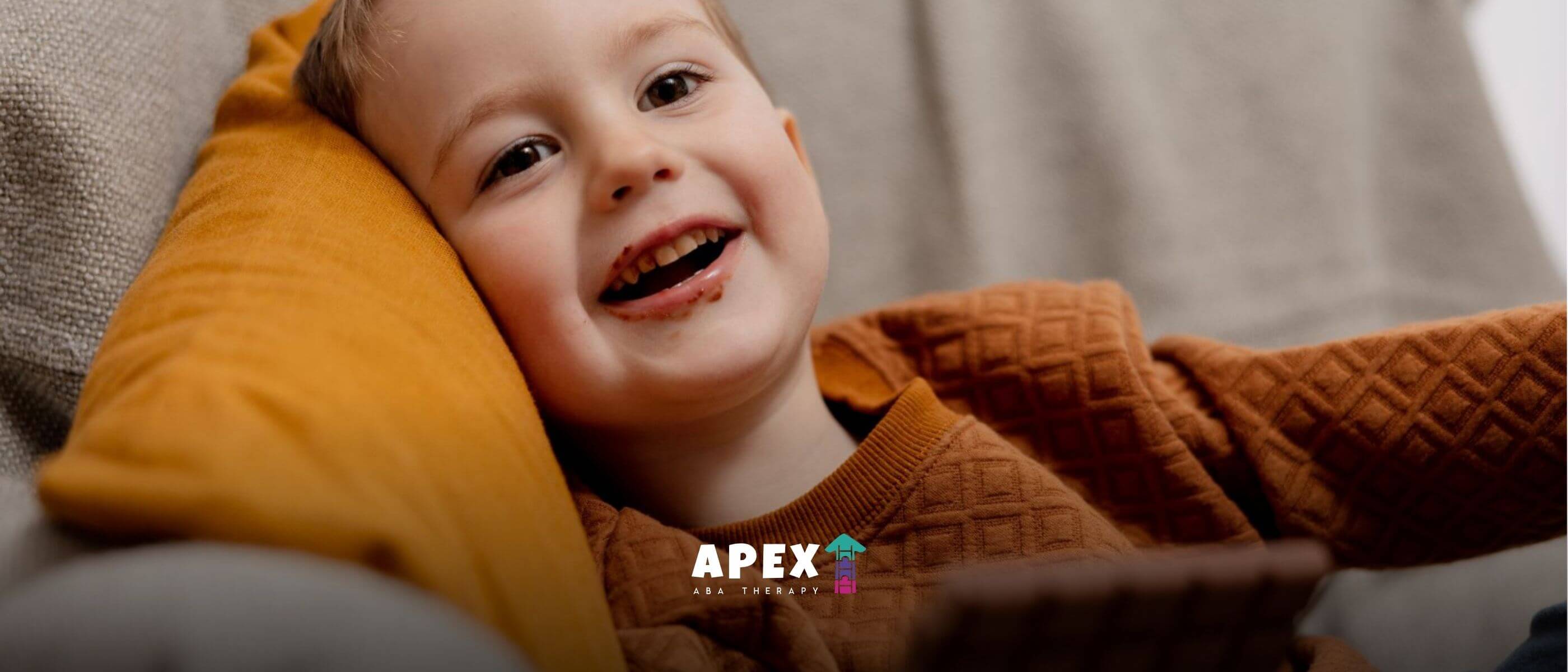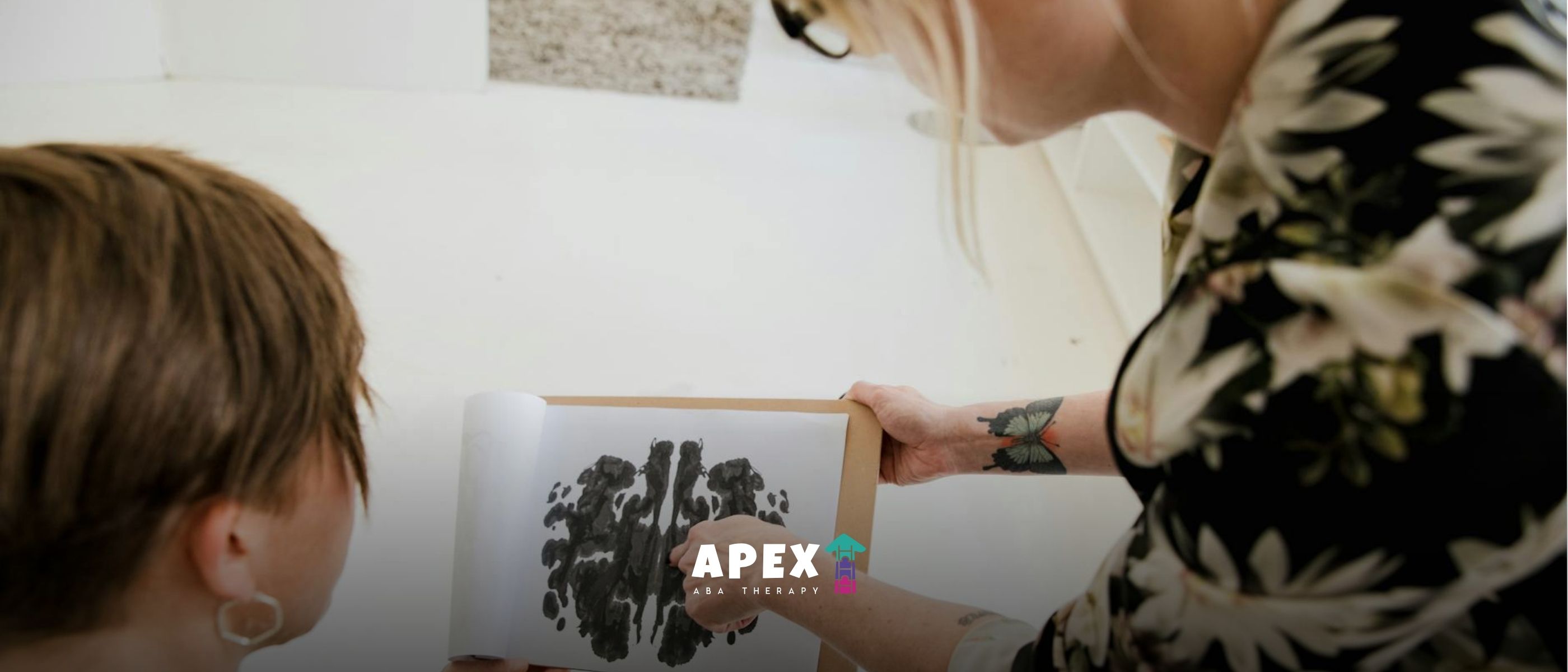Do Baby Monitors Cause Autism?
Explore the relationship between baby monitors and autism. Delve into the research to understand whether there is a connection between the use of baby monitors and the development of autism.

Do Baby Monitors Cause Autism?
Helping You Keep an Eye on Your Little One
Hey there, fellow parents! If you're anything like us, you want to keep a watchful eye on your little one, even when they're sleeping. One way to do this is by using a baby monitor. With so many options available on the market, however, it can be tough to choose the right one for your family's needs.
In this blog post, we'll walk you through what features to consider when choosing a baby monitor and provide recommendations for safe use. We understand that your baby's well-being is your top priority, and we want to help you make an informed decision. So sit back, relax, and let us help you navigate the world of baby monitors!

What It Is and How It Affects People
Before we dive into the topic of baby monitors and autism, let's first talk about what autism is and its symptoms. Autism, or Autism Spectrum Disorder (ASD), is a neurodevelopmental disorder that affects the way a person communicates, socializes, and behaves. Some common symptoms of autism include difficulty with social interactions, delayed language development, repetitive behaviors, and sensory issues.
According to the Centers for Disease Control and Prevention (CDC), autism affects an estimated 1 in 36 children in the United States. While the exact causes of autism are not yet fully understood, research suggests a combination of genetic and environmental factors may play a role.
Autism is not caused by baby monitors or any other device or product. Rather, it is a complex disorder that requires specialized diagnosis and support. If you suspect your child may have autism or are concerned about their development, it's important to speak with a healthcare professional who can provide an evaluation and appropriate care.

Can Baby Monitors Really Cause Autism?
You may have heard the claim that baby monitors can cause autism. This claim has been circulating on the internet and in some parenting communities, causing concern and confusion among parents. However, it's important to know that there is no scientific evidence to support this claim.
In fact, the American Academy of Pediatrics (AAP) states that there is no evidence to suggest that baby monitors or any other electronic device causes autism. While it's true that some studies have found a link between electronics and autism, these studies are mainly focused on prenatal exposure to electromagnetic fields and do not involve baby monitors.
So where did this claim come from? It's hard to say for sure, but it appears to be based on misinformation and fear-mongering. Some anti-vaccine groups and conspiracy theorists have spread this rumor as part of their agenda, despite the lack of scientific evidence.
When it comes to your baby's safety and well-being, it's important to rely on accurate information from reputable sources. Don't let fear and misinformation guide your decisions. With that said, let's move on to what you should consider when choosing a baby monitor.
Investigating the Link Between Baby Monitors and Autism
While there is no evidence to suggest that baby monitors cause autism, some studies have looked into the potential link between electronic devices and developmental disorders. However, it's important to take these studies with a grain of salt and evaluate their quality and limitations.
One study published in the journal Environmental Health Perspectives found a small association between prenatal exposure to magnetic fields from household appliances and autism. However, this study did not involve baby monitors specifically, and the association was weak and not considered conclusive.
Another study published in the journal Scientific Reports found a link between prenatal exposure to radiofrequency electromagnetic fields (RF-EMF) and autism-like behavior in mice. However, this study was conducted on animals rather than humans, and the relevance to baby monitors is unclear.
Overall, while these studies are interesting, they are not sufficient to support the claim that baby monitors cause autism. It's important to continue researching this topic and to rely on accurate information from reputable sources.
When it comes to choosing a baby monitor, focus on factors such as range, battery life, audio or video quality, and safety features rather than unsubstantiated claims about autism. Remember to always consult with your pediatrician if you have concerns about your child's development.
Exploring Other Factors That May Influence Autism Risk
While there is no evidence to suggest that baby monitors cause autism, there are other factors that have been linked to autism. These factors include advanced parental age, premature birth, and exposure to environmental toxins.
Advanced parental age has been shown to increase the risk of having a child with autism. This is because genetic mutations are more likely to occur in older parents. Premature birth is also a risk factor for autism, as premature babies may experience brain damage or developmental delays.
Exposure to environmental toxins such as air pollution, pesticides, and lead has also been linked to an increased risk of autism. These toxins can interfere with brain development and alter gene expression, potentially increasing the chances of developing autism.
These factors do not cause autism on their own. Rather, they may interact with genetic predisposition to increase the risk of developing autism. It's also worth noting that many children who have these risk factors do not develop autism, and many children who have autism do not have these risk factors.
As with any health concern, it's important to focus on prevention and early intervention. This may include maintaining a healthy lifestyle during pregnancy, avoiding exposure to environmental toxins, and seeking early diagnosis and treatment if you have concerns about your child's development.
In the next section, we'll provide some tips for choosing a baby monitor that meets your family's needs while prioritizing safety and peace of mind.
Understanding Their Design and Potential Impact on Autism Risk
Baby monitors are electronic devices that are designed to help parents keep an eye and ear on their baby while they sleep or play. Most baby monitors consist of two parts: a transmitter that is placed near the baby, and a receiver that the parent carries with them.
The transmitter picks up sound and video from the baby's room and sends it to the receiver, allowing parents to monitor their baby from another room. Some types of baby monitors also include additional features such as temperature sensors, night lights, and lullabies.
While baby monitors are generally safe and effective, some types may emit electromagnetic radiation. This has led to concerns about whether exposure to this radiation could increase the risk of autism.
The amount of radiation emitted by baby monitors is generally very low and not considered harmful. In fact, many household appliances emit similar levels of radiation without causing any health problems.
That being said, if you have concerns about exposure to electromagnetic radiation from your baby monitor, you may want to consider using a model that emits lower levels of radiation or choosing a different type of monitor altogether.
In the next section, we'll provide some tips for choosing a baby monitor that meets your family's needs while prioritizing safety and peace of mind.
Recommendations for Parents Who Use Baby Monitors
Baby monitors can be a valuable tool for parents who want to keep an eye and ear on their baby while they sleep or play. However, it's important to choose a monitor that meets your family's needs while prioritizing safety and peace of mind.
Here are some recommendations for parents who use baby monitors:
- Choose a monitor with a secure connection: Look for a monitor that uses encryption or other security measures to prevent others from accessing the video or audio feed.
- Opt for lower radiation levels: If you have concerns about exposure to electromagnetic radiation, consider choosing a monitor that emits lower levels of radiation or using a different type of monitor altogether.
- Check the battery life: Make sure the monitor has a long battery life so you don't have to worry about it running out of power in the middle of the night.
- Consider additional features: Some monitors come with additional features such as temperature sensors, night lights, and lullabies. Consider whether these features would be useful for your family.
While baby monitors can be helpful, there are alternative ways to monitor your baby's sleep or well-being. For example, you may want to consider using a traditional audio-only monitor or simply checking on your baby periodically throughout the night.
Ultimately, the most important thing is to choose a monitoring method that works for your family and helps you feel confident and secure in caring for your baby.
Safety Considerations When Using a Baby Monitor
While baby monitors can be a valuable tool for parents, it's important to keep in mind some safety considerations to ensure that your baby stays safe and secure.
Here are some safety considerations to keep in mind when using a baby monitor:
- Potential hazards from cords: Make sure that any cords associated with your baby monitor are kept out of reach of your baby. This can help prevent your baby from getting tangled up in the cords or pulling the monitor off a table or shelf.
- Wireless radiation: While the amount of radiation emitted by baby monitors is generally very low and not considered harmful. If you have concerns about exposure to electromagnetic radiation, consider choosing a monitor that emits lower levels of radiation or using a different type of monitor altogether.
- Secure placement of the monitor: Make sure that the monitor is placed in a secure location where it cannot fall or be knocked over by your baby. This can help prevent injuries and ensure that the monitor continues to function properly.
- Regular maintenance: Regularly check your baby monitor for any signs of wear or damage. If you notice any problems, stop using the monitor immediately and replace it as soon as possible.
By keeping these safety considerations in mind, you can help ensure that your baby stays safe and secure while using a baby monitor. Additionally, always follow the manufacturer's instructions for safe use and seek professional advice if you have any questions or concerns about using your baby monitor.
FAQs
Are some types of baby monitors safer than others when it comes to radiation exposure?
Yes, some types of baby monitors emit lower levels of radiation than others. If you have concerns about exposure to electromagnetic radiation from your baby monitor, consider choosing a model that emits lower levels of radiation or using a different type of monitor altogether.
Should I stop using my baby monitor out of fear that it may cause autism?
No, there is no need to stop using your baby monitor out of fear that it may cause autism. Baby monitors are generally safe and effective, and there is no scientific evidence to suggest that they cause autism or any other developmental disorder.
What should I do if I have concerns about my child's development or suspect they may have autism?
If you have concerns about your child's development or suspect they may have autism, it's important to speak with a healthcare professional who can provide an evaluation and appropriate care. Early intervention is key in supporting children with developmental disorders such as autism.
Summary
In this blog post, we've explored the link between baby monitors and autism risk. While there is no evidence to suggest that baby monitors cause autism, there are other factors that have been linked to autism, such as advanced parental age, premature birth, and exposure to environmental toxins.
We've also discussed how baby monitors work and provided recommendations for parents who use them. It's important to choose a monitor that meets your family's needs while prioritizing safety and peace of mind. Additionally, there are alternative ways to monitor your baby's sleep or well-being, such as using a traditional audio-only monitor or checking on your baby periodically throughout the night.
When it comes to the potential link between baby monitors and autism risk, it's important to keep in mind that many factors can influence a child's risk of developing autism. While some types of baby monitors may emit electromagnetic radiation, the amount of radiation emitted is generally very low and not considered harmful.
Ultimately, the most important thing is to make informed decisions about how you monitor your baby's sleep and well-being. This may include choosing a baby monitor that meets your family's needs while prioritizing safety, considering alternative monitoring methods, and seeking early diagnosis and treatment if you have concerns about your child's development.
By staying informed and making thoughtful decisions about how you care for your baby, you can help ensure that they grow up happy, healthy, and secure.
Sources
Frequently Asked Questions
.jpg)
Autism And Bed Wetting: Unlocking Solutions
Explore the connection between autism and bedwetting and find practical insights and solutions for parents and caregivers. Discover how understanding and support can make a difference in managing this common challenge for children and individuals on the autism spectrum.

Proven Examples of Smart Goals for Students with Autism
Unlock the potential of students with autism through proven examples of SMART goals. Set them up for success!
.jpg)
What is the Sensory Processing Disorder ICD-10 Code?
If you or someone you know has been diagnosed with Sensory Processing Disorder (SPD), you may have heard of the ICD-10 code. In this article, we'll explain what the SPD ICD-10 code is, what it means, and why it's important.

Understanding Vestibular Stimming in Autism
Demystifying vestibular stimming in autism: Understand the impact, strategies, and support for individuals. Uncover the power of self-regulation through stimming.

Do Amish Kids Get Autism?
Explore the prevalence of autism in Amish children and uncover the factors that may contribute to this phenomenon. Delve into the unique characteristics of Amish communities and their impact on autism rates.

Breaking Barriers: Free Sensory Toys for Autism That Make a Difference
Discover life-changing free sensory toys for autism! Unlock the power of sensory play for children with autism.

Famous People Thriving with Autism or Aspergers Syndrome
Discover the extraordinary journeys of famous people thriving with autism and Asperger's syndrome. Unveil the inspiring stories of icons who break stereotypes.

IEP Goals for Autism: Ultimate Guide
Unlock the potential: Constructing meaningful IEP goals for autism to support your child's growth and development. Discover strategies and examples!

Young Celebrities with Autism
Discover inspiring young celebrities with autism and their journeys in entertainment and advocacy.
.jpg)
Autism Hand Posturing: Causes, Types, and Management
Autism hand posturing refers to repetitive and often purposeless movements or postures of the hands and fingers seen in individuals with autism. These movements range from simple hand flapping to more complex finger twisting and tapping.

Distinguishing ADHD vs Autism Stimming
ADHD stimming vs autism stimming: Discover the motivations and characteristics behind these behaviors in individuals.

Addressing Rigid Thinking in Autism
Unlocking flexibility in autism! Discover strategies, therapy, and tools to address rigid thinking for a brighter future.

DSM 6 Release Date Revealed
Unlock the future with DSM-6! Discover the release date and anticipated changes in the mental health landscape.

Why Do Autistic People Rock?
Uncover insights with empathy, exploring the diverse ways rocking serves as a coping mechanism and sensory regulation for individuals on the autism spectrum. Join us in celebrating the beauty of neurodiversity, fostering understanding and appreciation for this distinctive aspect of autistic experience.

Signs Your Toddler Is Not Autistic
Discover reassuring signs that your toddler may not be autistic in this human-centered guide. Explore the joy of your child's unique developmental journey, celebrating their social engagement and communication skills.
.jpg)
Facial Features & Physical Characteristics Of Autism
Some researchers believe that these physical characteristics are related to the underlying neurological differences in individuals with autism.

The Three Main Causes of Autism: Exploring Genetics, Environment, and Brain Differences
Autism is influenced by genetics, environmental factors, and brain differences. Learn how these three causes contribute to the development of the condition.

What are the Common Behaviors of Autism?
Autism behaviors can vary widely. Learn about the most common traits, from social difficulties to sensory sensitivities, and how ABA therapy can support progress.

What Age is Too Late for ABA Therapy?
It’s never too late to start ABA therapy. Discover how children, teens, and adults can still make meaningful progress with personalized ABA support.

Is In-Home ABA the Right Fit for Your Child? Here’s What You Need to Know
In-home ABA therapy offers a tailored approach to support your child’s development. Learn how it can improve key skills like communication, social interaction, and more.

How Families Can Make ABA Therapy a Positive and Successful Experience
Learn how families can ensure ABA therapy is a positive, successful experience. Discover tips for involvement, consistency, and support to make ABA effective.

Can a Child Have Autism and Still Talk Normally?
Can a Child Have Autism and Still Talk Normally?

What Are the Red Flags for Autism in a 2-Year-Old?
Autism Red Flags in 2-Year-Old Children | Apex ABA

Is Autism a Lifelong Condition?
Is Autism a Lifelong Condition? Understanding The Journey

Best Age to Start ABA Therapy & What Parents Should Know
Best Age to Begin ABA Therapy for Children | Apex ABA

What’s the Difference Between High-Functioning Autism and Asperger’s?
Difference Between High-Functioning Autism and Asperger’s

ABA Therapy Enhancing Social Skills: A Key to Improved Communication and Interaction for Children with Autism
How ABA Therapy Helps Children Build Social Skills

Misconceptions About ABA Therapy: Clearing Up the Myths
Common Misconceptions About ABA Therapy | Apex ABA

What Does It Mean to Be “On the Spectrum”?
What Does It Mean to Be on the Autism Spectrum? | Apex ABA

Understanding the Power of Functional Behavior Assessment ABA
Effective ABA Techniques for Behavioral Intervention

Discover How ABA Helps ADHD in Your Child’s Life
How ABA Therapy Helps Children with ADHD | Apex ABA

Life-Changing ABA Therapy Case Studies You Need to Know
Real Success Stories from ABA Therapy Journeys | Apex ABA

Can Children “Outgrow” Autism?
Can Children Outgrow Autism? Understanding the Facts

Is Autism a Mental Illness or a Developmental Disorder?
Mental Illness or Developmental Disorder Explained

Is Autism More Common in Boys Than Girls?
Autism in Boys vs Girls: What the Research Reveals

What is the Difference Between Autism and Sensory Processing Disorder?
Autism vs Sensory Processing Disorder Differences | Apex ABA

What's the Difference Between Autism and Speech Delay?
Autism vs Speech Delay & Key Differences Explained | Apex

ABA Therapy in North Carolina: A Complete Guide for Families
Learn everything about ABA therapy in North Carolina, including services, costs, insurance coverage, and how to choose the best ABA provider in North Carolina.

ABA Therapy vs Preschool: Making the Right Choice Explained
Learn the key differences between ABA therapy and preschool to help you choose the best option for supporting your child’s early learning and development.

Which Personality Type Is Most Likely to Be Autistic?
Which Personality Type Is Most Likely to Be Autistic? | Apex ABA

Why Consistency Matters: What Happens If ABA Therapy Ends Prematurely
What Happens If ABA Therapy Is Stopped Too Early? | Apex ABA

How Can You Gain an Autistic Person’s Attention? Tips for Meaningful Connection
How Can You Gain an Autistic Person’s Attention?

Sensory Sensitivity and Sixth Sense: What Autism Research Shows
Do Autistic People Have Sixth Sense? | Apex ABA

What Happens If Autism Is Left Untreated?
Can Autism Get Worse If Untreated? | Apex ABA

What Not To Do With An Autistic Child: Avoid These 10 Mistakes
What Not To Do With An Autistic Child? | Apex ABA

Coping with Regressive Autism: Tips for Parents
What is Regressive Autism? | Apex ABA

Do Autistic Kids Live with Parents Forever? Here’s the Reality
Do autistic kids live with parents forever? Discover the facts about independence and living arrangements in autism with expert-backed insights.

Red Flags in ABA Therapy: What Parents Must Watch For
What are the red flags in ABA therapy? Learn to identify warning signs for safe, effective autism treatment in this blog.

Can You Go from Level 3 Autism to Level 1? Is It Possible?
Can you go from level 3 autism to level 1? Learn about progress, therapy, and support options with expert help from Apex ABA.

Autism vs Introversion: How to Tell the Difference
Is it autism or just introversion? Learn the key differences and signs with expert insights from Apex ABA.

ABA for Managing Transitions: Tips to Ease Change for Kids
Learn how ABA for managing transitions helps children with autism handle change smoothly.

Understanding the 7 Dimensions of ABA for Better Outcomes
Discover the 7 Dimensions of ABA and how they can lead to better outcomes.

5 Unique Autistic Love Languages You Should Know About
Discover the 5 unique autistic love languages that can enhance your relationships.

Transforming Futures: Improving Lives of Kids with Autism
Discover how innovative strategies are focused on improving lives of kids with autism.

ABA Therapy Techniques for Addressing Repetitive Behaviors in Autism
Harnessing ABA Strategies to Tackle Repetitive Behaviors in Autism

The Role of ABA Therapy in Enhancing Communication Skills
Transforming Communication for Children with Autism Through ABA Therapy

How ABA Therapy Supports Effective Communication in Nonverbal Children
Unlocking Speech Through ABA: Transformative Paths for Nonverbal Children

How to Help Your Child Transfer Skills Learned in ABA Therapy to Real Life
Unlocking Real-World Success for Children in ABA Therapy

How ABA Therapy Helps Children Develop Better Organizational Skills
Empowering Children with ABA Therapy for Enhanced Organizational Skills

The Importance of Creating a Structured Routine in ABA Therapy
How Structured Routines Transform ABA Therapy for Autism

The Role of ABA Therapy in Developing Conflict Resolution Skills
How ABA Therapy Transforms Conflict Resolution Competence

The Importance of Generalization in ABA Therapy for Autism
Unraveling the Role of Generalization in Enhancing ABA Therapy Outcomes

Why ABA Therapy is Crucial for Parents of Children with Autism
The Transformative Impact of ABA Therapy on Families with Autistic Children

How to Involve Parents in the ABA Therapy Process
Maximize Parent Engagement in ABA Therapy for Better Outcomes

What are the Core Principles of ABA Therapy?
Exploring the Cornerstones of Applied Behavior Analysis

Why Communication is Key in ABA Therapy for Autism
The Crucial Role of Communication in ABA Therapy for Autism

Why ABA Therapy Works for Children with Autism Regardless of Severity
Effective ABA Interventions for All Levels of Autism

Why It’s Important to Maintain a Balanced Approach to ABA Therapy
Balancing Effectiveness and Ethics in ABA Therapy

The Role of ABA Therapy in Developing Adaptive Behavior Skills
Exploring How ABA Therapy Transforms Lives

The Benefits of Combining ABA Therapy with Speech Therapy
Maximizing Development with Integrated Therapy Approaches

What to Expect During an ABA Therapy Session
Demystifying ABA Therapy Sessions: A Comprehensive Overview

How ABA Therapy Enhances Cognitive Functioning in Children with Autism
Exploring the Influence of Applied Behavior Analysis on Autism Cognition

How ABA Therapy Helps Children with Autism with Transitions Between Activities
Easing Transitions for Children with Autism: The Role of ABA Therapy

How to Foster Cooperation Between Parents and Therapists in ABA Therapy
Building Effective Partnerships in ABA Therapy

The Role of Positive Reinforcement in ABA Therapy
Exploring the Impact of Positive Reinforcement in Modern ABA Therapy

Why ABA Therapy is Effective for Children of All Ages
Understanding the Reach and Impact of ABA Therapy Across Age Groups

How to Support Your Child’s Emotional Growth with ABA Therapy
Harnessing ABA Therapy for Enhancing Emotional Development in Children with Autism

The Role of ABA Therapy in Enhancing Peer Relationships for Children with Autism
Harnessing ABA Therapy to Boost Social Connections Among Autistic Children

How to Overcome Common Challenges in ABA Therapy
Navigating Hurdles in ABA Therapy: Strategies and Solutions

How to Manage Behavioral Expectations with ABA Therapy
Understanding Applied Behavior Analysis in Behavioral Management

How ABA Therapy Promotes Emotional Regulation in Children with Autism
Unlocking Emotional Balance: ABA Therapy's Role in Autism

How ABA Therapy Improves Social Skills in Children with Autism
Harnessing ABA Therapy to Enhance Social Competency in Autistic Children

The Role of ABA Therapy in Classroom Success for Children with Autism
Harnessing ABA for Academic and Social Growth in Autism

The Importance of Evaluating and Revising ABA Therapy Goals Regularly
Regular Evaluations: The Cornerstone of ABA Therapy Success

How to Choose the Right ABA Therapy Program for Your Child
Finding the Perfect ABA Therapy Fit for Your Child

The Role of Behavior Analysts in Implementing ABA Therapy
Understanding the Vital Contributions of Behavior Analysts in ABA Therapy

The Role of RBTs (Registered Behavior Technicians) in ABA Therapy
A Closer Look at the Essential Work of RBTs in ABA Therapy

What Makes ABA Therapy Effective for Different Learning Styles?
Unraveling the Flexibility and Effectiveness of ABA Therapy

Understanding the Importance of Data Collection in ABA Therapy
The Role of Data in Shaping Effective ABA Therapy

How ABA Therapy Helps with Toilet Training in Children with Autism
Unlocking Independence: ABA's Role in Autism Toilet Training

The Importance of Encouraging Natural Play in ABA Therapy
Revolutionizing ABA Therapy with Natural Play

How to Make the Most of ABA Therapy at Home
Enhancing ABA Therapy Practices Within Your Home

How to Make ABA Therapy Fun and Engaging for Children with Autism
Transforming ABA Therapy into a Fun Learning Journey

The Role of ABA Therapy in Addressing Verbal and Nonverbal Communication in Autism
Enhancing Communication Skills in Autism Through ABA Therapy

Understanding the Role of Family in ABA Therapy for Autism
The Crucial Impact of Family Engagement in Autism Therapy

How to Handle Setbacks and Challenges in ABA Therapy
Navigating Difficulties and Setbacks in ABA Therapy for Children

How ABA Therapy Can Help Children Build Stronger Relationships with Peers
Unpacking the Influence of ABA Therapy on Peer Relationships in Children

Understanding the Concept of Shaping in ABA Therapy
Demystifying Shaping Techniques in Applied Behavior Analysis

How ABA Therapy Enhances Independent Living Skills in Autism
Unlocking Independence: The Role of ABA Therapy in Autism
.jpg)
90+ Reading Statistics, Facts and Demographics
In this article, we will dive into 60 reading statistics that shed light on the importance of reading and its impact on different aspects of life.



